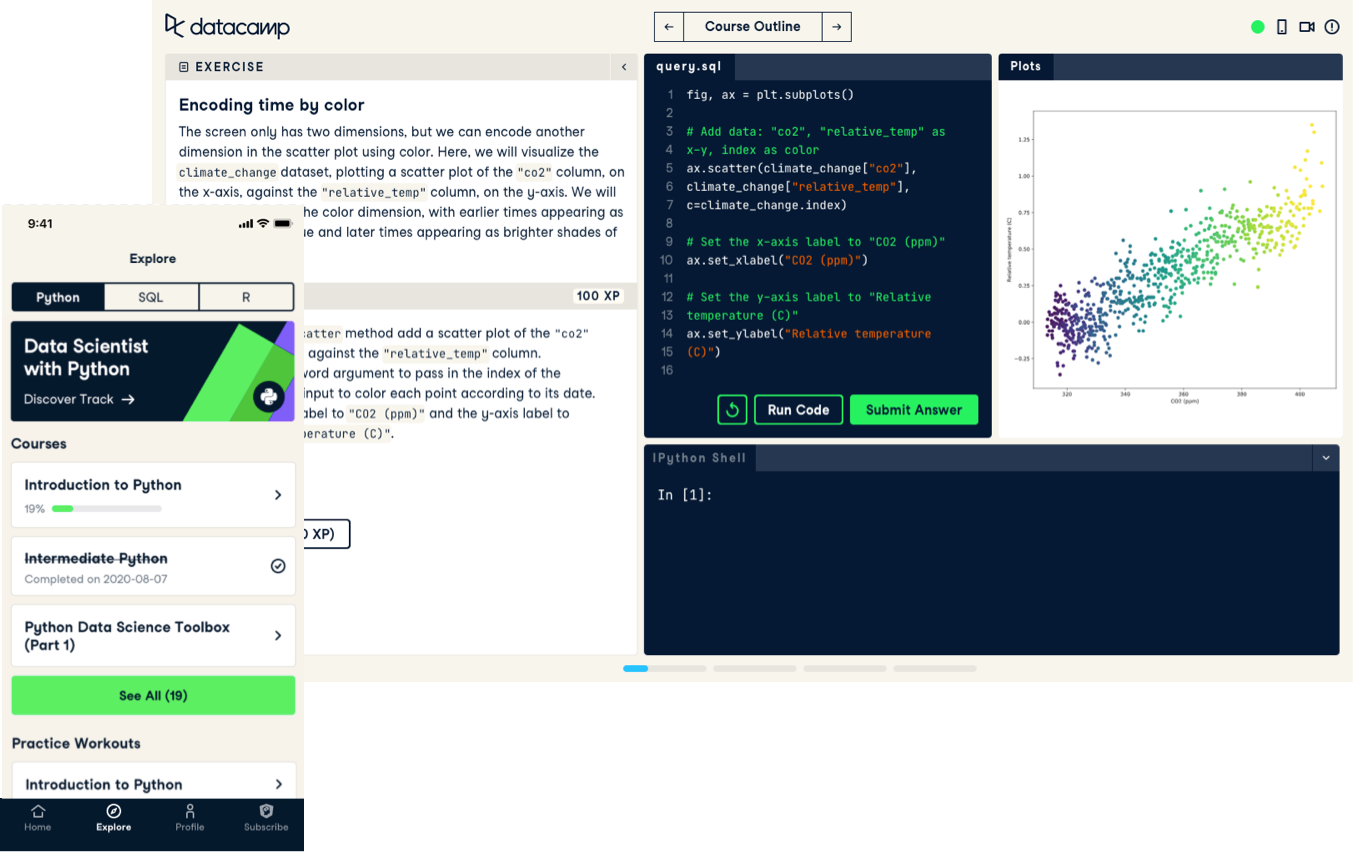Introduction to KNIME
Learn to use the KNIME Analytics Platform for data access, cleaning, and analysis with a no-code/low-code approach.
Folgen Sie kurzen Videos, die von erfahrenen Trainern geleitet werden, und üben Sie das Gelernte mit interaktiven Übungen in Ihrem Browser.

Learn to use the KNIME Analytics Platform for data access, cleaning, and analysis with a no-code/low-code approach.
Learn how to manipulate data and create machine learning feature sets in Spark using SQL in Python.
Visualize seasonality, trends and other patterns in your time series data.
Practice Power BI with our healthcare case study. Analyze data, uncover efficiency insights, and build a dashboard.
Orchestrate data using unions, joins, parsing, and performance optimization in Alteryx.
Master Responsible AI Practices with this comprehensive course, featuring real-world case studies and interactive content.
Learn to use essential Bioconductor packages for bioinformatics using datasets from viruses, fungi, humans, and plants!
Explore ways to work with date and time data in SQL Server for time series analysis
In this case study, you’ll use visualization techniques to find out what skills are most in-demand for data scientists, data analysts, and data engineers.
Learn how to detect fraud using Python.
Learn to build recommendation engines in Python using machine learning techniques.
Apply your finance and R skills to backtest, analyze, and optimize financial portfolios.
Julia is a new programming language designed to be the ideal language for scientific computing, machine learning, and data mining.
Explore the concepts and applications of linear models with python and build models to describe, predict, and extract insight from data patterns.
Detect anomalies in your data analysis and expand your Python statistical toolkit in this four-hour course.
Learn to design and run your own Monte Carlo simulations using Python!
In this course youll learn to use and present logistic regression models for making predictions.
Lernen und nutzen Sie leistungsstarke Deep Reinforcement Learning-Algorithmen, inkl. Optimierungstechniken.
Learn how to use spaCy to build advanced natural language understanding systems, using both rule-based and machine learning approaches.
Master data fluency! Learn skills for individuals and organizations, understand behaviors, and build a data-fluent culture.
Learn the gritty details that data scientists are spending 70-80% of their time on; data wrangling and feature engineering.
Learn how to identify, analyze, remove and impute missing data in Python.
In this course, youll learn the basics of relational databases and how to interact with them.
Learn about the challenges of monitoring machine learning models in production, including data and concept drift, and methods to address model degradation.
Learn fundamental probability concepts like random variables, mean and variance, probability distributions, and conditional probabilities.
Begin your journey with Scala, a popular language for scalable applications and data engineering infrastructure.
Learn to effectively convey your data with an overview of common charts, alternative visualization types, and perception-driven style enhancements.
Level up your GitHub skills with our intermediate course on GitHub Projects, Administration, and advanced security features.
Gain a clear understanding of GDPR principles and how to set up GDPR-compliant processes in this comprehensive course.
Learn how to use Python scripts in Power BI for data prep, visualizations, and calculating correlation coefficients.